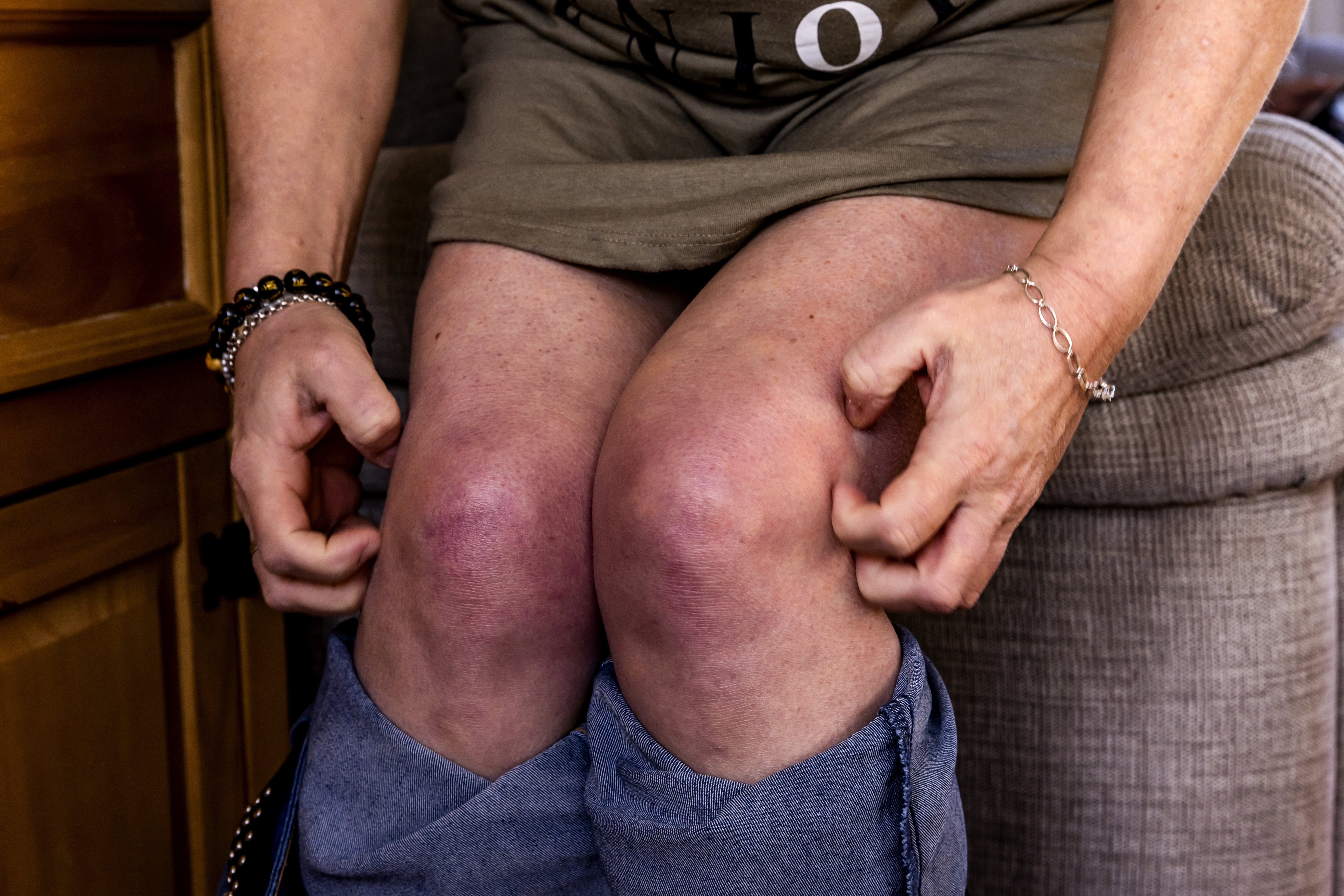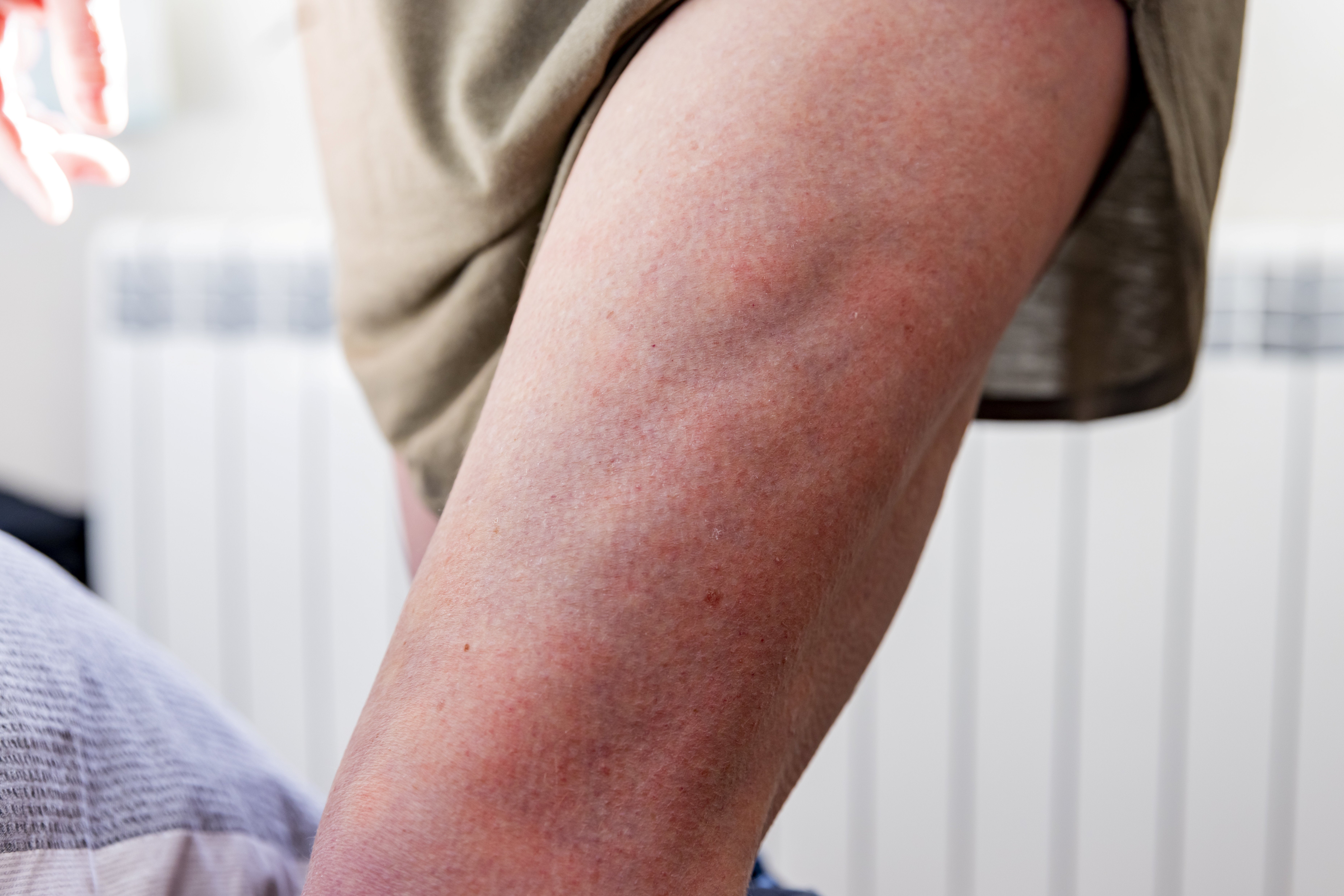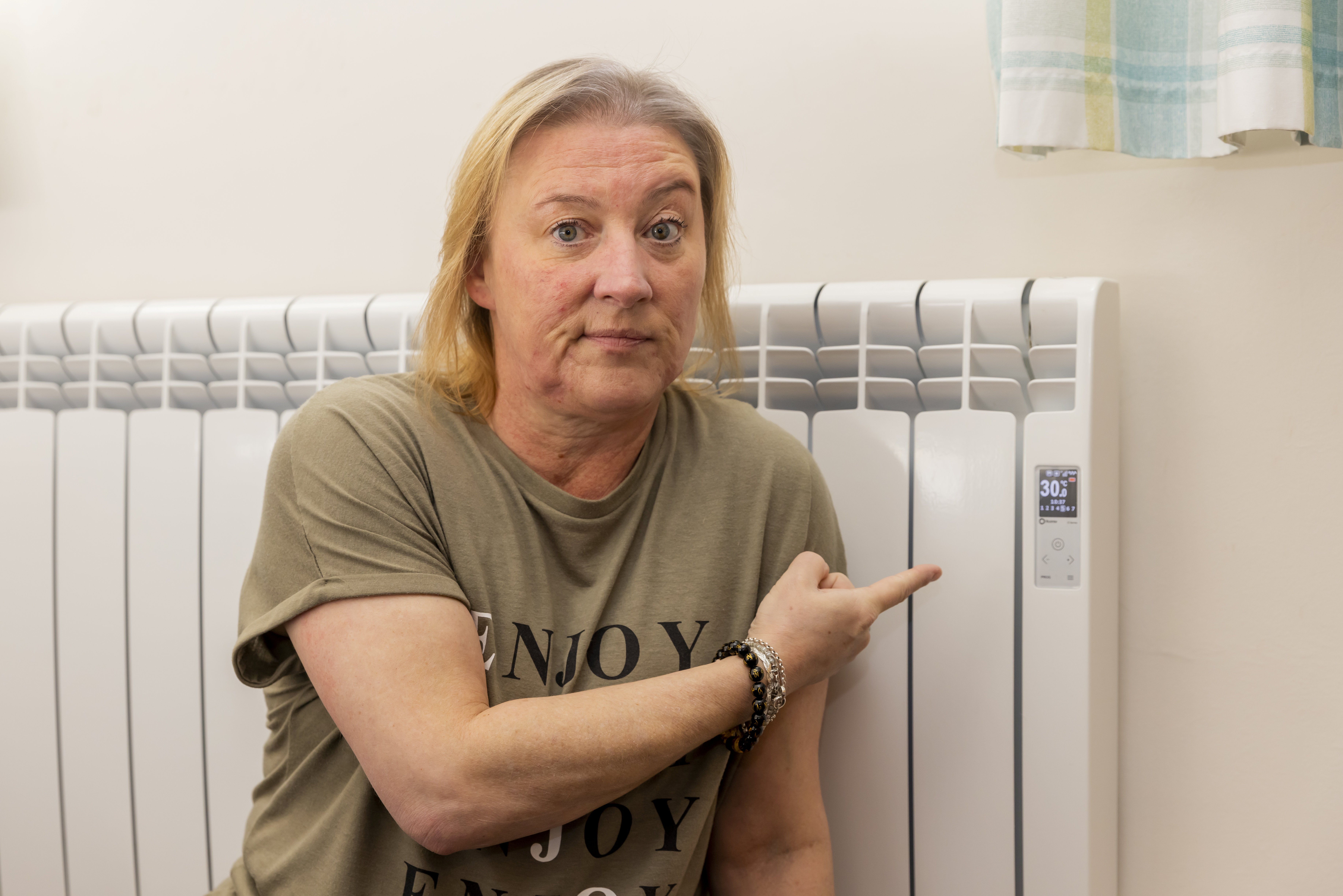Your support helps us to tell the story
From reproductive rights to climate change to Big Tech, The Independent is on the ground when the story is developing. Whether it's investigating the financials of Elon Musk's pro-Trump PAC or producing our latest documentary, 'The A Word', which shines a light on the American women fighting for reproductive rights, we know how important it is to parse out the facts from the messaging.
At such a critical moment in US history, we need reporters on the ground. Your donation allows us to keep sending journalists to speak to both sides of the story.
The Independent is trusted by Americans across the entire political spectrum. And unlike many other quality news outlets, we choose not to lock Americans out of our reporting and analysis with paywalls. We believe quality journalism should be available to everyone, paid for by those who can afford it.
Your support makes all the difference.A woman with an allergy to cold and heat says maintaining the necessary temperature in her home will see her bills shoot up by 525 per cent.
Sam Newland, 50, suffers from the incurable condition cold urticaria and develops rashes and painful welts on her skin when she gets cold. Not only is there no cure, but the same symptoms are triggered by sweat.
Sam needs to have her heating on a constant 30 degrees in winter, while keeping fans whirring constantly around her home during hot weather.
Throughout the recent heatwave, she was forced to sleep with a fan above her bed due to keep her rashes at bay.
Sam, a personal assistant from Stevenage, Herefordshire, said her electricity bills from So Energy used to be £48 a month, before creeping up to £60 - but now she’s been told they could reach an eyewatering £300 every 30 days.
She said: “I have fans on all over my house as it’s too hot at the moment that my sweat is causing the rashes and it’s really painful.
“I can’t win. I have to have my heating on all the time during the winter and now I’m paying out loads to keep fans on to keep me cool in the summer.
“We were paying £48 a month and then it went up to £60 and now we’ve been predicted it could https://chartbeat.com/publishing/sites/be £300 a month.
“It’s bonkers and it’s not my fault that my body can’t cope with extreme heat or cold.
“This spike is worrying enough for us, so I’d hate how other people are feeling.”

Sam has suffered from cold urticaria since moving back to the UK from Singapore when she was just 13.
Doctors initially had no idea why she was developing rashes and welts and it took two years for them to diagnose the cause as an allergy to cold temperatures.
Unfortunately, there is no cure for cold urticaria, and due to the heatwave she has suffered the same symptoms caused by sweat.
Sam is only able manage her condition with antihistamine while trying to keep her body at a warm temperature in the winter and cool in the Summer.
She has flare ups every few days and set about trying to find treatments to help her condition.
Symptoms - including itching all over and ‘huge red spots’ - can be triggered by all sorts of cold weather, including damp or humid days and even just sitting on a brick wall.

Since diagnosis she has tried multiple antihistamine brands - settling on a supermarket own brand of Benadryl in her early 20s.
For other sufferers she recommends trying a variety of antihistamines to find what works for them.
“I take three a day and that is the best thing that helps,” she said.
“It’s been so warm that the sweat is running down my neck and back and causing the itchy blotches.
“I have fans on all round the house and one above my bed when I got to sleep. I haven’t even looked at the smart meter to see how much I am spending or using.
“I’m too scared.”

Sam, who lives with husband, Andy, 60, a print finisher, already saw her heating bills soar to £60 a month and has now predicted that they will rise to £300 a month- just under £3,000 a year.
“It’s terrifying,” she said.
“I have to use fans to keep my symptoms at bay and come the winter I’ll have my heating hiked up.
“It will get to the point where my husband and I will be then choosing between eating or filling up the car to get to work.
“We live in the middle of nowhere so we rely on our care.
“We’re on comfortable salaries so it’s scary that we’re facing this.
“I’d hate to think how people worse off than us are feeling.”




Join our commenting forum
Join thought-provoking conversations, follow other Independent readers and see their replies
Comments